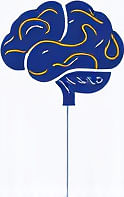Motivation Strategies for Autistic Professionals in Remote Work
 by Marlene Keeling
by Marlene Keeling
Discover practical strategies to boost motivation for autistic professionals working remotely. This article offers empathetic advice on routines, tools, and support to enhance productivity and achieve better work-life balance, tailored for those with autism.

Remote work presents unique opportunities for autistic professionals, allowing greater flexibility and reduced sensory overload. However, maintaining motivation can be a challenge without the structure of a traditional office. This article explores helpful strategies to support daily productivity and well-being.
Many autistic adults find that remote environments reduce distractions, yet sustaining focus requires intentional approaches. For instance, motivation often stems from clear goals. Setting specific, achievable objectives at the start of each day can help create a sense of accomplishment.
One effective method involves establishing a consistent routine. This means designating a dedicated workspace that minimizes interruptions. By doing so, autistic professionals can signal to their brain that it's time to work, fostering a more productive mindset. Regular breaks are essential too; techniques like the Pomodoro method, which alternates work periods with short rests, can prevent fatigue and maintain energy levels.
Tools play a key role in supporting these efforts. Apps that block distracting websites or organize tasks can be invaluable. For example, simple timers or to-do lists provide structure without overwhelming complexity. It's important to experiment with different options to find what suits individual needs, ensuring that technology serves as an aid rather than a burden.
Building a supportive network is another vital aspect. Connecting with peers who share similar experiences can offer encouragement and practical tips. Online communities or virtual meetups provide spaces to share successes and challenges, helping to combat feelings of isolation that sometimes accompany remote work.
Daily Hacks for Sustaining Momentum
In practice, starting small can make a big difference. Begin with one or two strategies and build from there. For autistic professionals, visual aids like color-coded schedules can enhance clarity and reduce anxiety. These tools help in tracking progress and celebrating small wins, which in turn boosts overall productivity.
Physical activity also contributes to motivation. Incorporating short walks or stretching exercises during breaks can improve mood and cognitive function. This is particularly beneficial for those who experience sensory sensitivities, as movement helps regulate the nervous system.
When it feels tough to get started, breaking tasks into smaller steps can be transformative. Instead of tackling a large project all at once, divide it into manageable parts. This approach not only makes work feel less intimidating but also allows for regular checkpoints to reassess and adjust as needed.
Balancing Work and Personal Life
Achieving harmony between professional duties and personal time is crucial for long-term success. Autistic individuals might benefit from setting firm boundaries, such as defined work hours, to prevent burnout. Ending the day with a relaxing activity, like reading or listening to music, can help transition out of work mode and promote rest.
Self-compassion is equally important. Recognizing that fluctuations in motivation are normal and offering oneself kindness during low periods can foster resilience. This mindset shift encourages sustainable habits rather than perfectionism.
In terms of resources, exploring books or webinars focused on neurodiversity can provide deeper insights. While external advice is helpful, adapting it to personal preferences ensures it remains effective.
Overcoming Common Hurdles
Some days, external factors like unexpected demands can disrupt plans. In these moments, flexibility is key. Having a backup plan, such as a list of alternative tasks, can keep momentum going. For autistic professionals, predictability aids in maintaining balance, so preparing for potential disruptions minimizes stress.
It's also worth noting the role of nutrition and sleep. A balanced diet and consistent sleep schedule support cognitive health, directly impacting motivation. Simple changes, like eating regular meals and limiting screen time before bed, can lead to noticeable improvements.
Ultimately, these strategies are about creating an environment that works for you. By prioritizing self-awareness and gradual implementation, autistic professionals can thrive in remote settings. Remember, progress comes from persistence and self-understanding.
In summary, adopting practical approaches like routines, tools, and community support can significantly enhance motivation. With patience and experimentation, achieving greater productivity and work-life balance is within reach for autistic adults in remote work.
